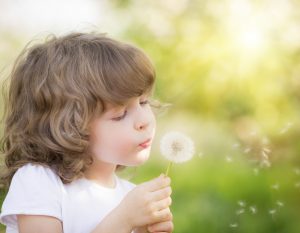Kids and Sexuality: It’s Time to Stop Walking on Eggshells
 When we think of sex therapy, we generally assume this takes place with (and is for) adults or couples. This neglects the importance of helping our children understand sexuality and their bodies.
When we think of sex therapy, we generally assume this takes place with (and is for) adults or couples. This neglects the importance of helping our children understand sexuality and their bodies.
If you are a parent, an aunt or uncle, or a much older sibling, you know that when it comes to the subject of sex and children, we walk around on eggshells. Children are sexual beings from the day they are born, though, and in depriving them of sexual knowledge and their own natural expressions we do them an injustice, often stunting their sexual development and growth.
We worry about overstimulation: that we are somehow being voyeuristic when we encourage kids to talk about sex. We worry that we might encourage or victimize them by educating and informing them. As educators, we worry about not having the parental permission. We assume, also, that many children live in a world where they are protected from sexually explicit material. I think we know that even the most protected child is exposed to sexual material in one form or another. Parents cannot monitor everything, but we can provide kids with tools to make informed choices and to process what they see, hear, and read.
It’s important to recognize that children are sexual beings. Children explore their bodies alone and with each other. This is normal behavior and should not be shamed or shunned. I am referring here to masturbation and mutual exploration (i.e. playing “doctor” or “house.”) Please note: I am not referring to sexual play between two or more youths of disparate age, or an adult with a child. Age is key here. A child is naturally inquisitive and curious about his or her body; an older individual should not exploit this. It is important to know, however, that same-age or close-in-age peer exploration is a part of natural and normal sexual development.
It’s important to recognize that children are sexual beings. Children explore their bodies alone and with each other.
An example I make is of two girls, age 8, who are found being sexual in bed. The parents decide to punish the girls, separating them from future play dates. The parents are confused and shocked, perceiving this behavior to be wrong.
It is important to know, also, that exploration is often done with a peer of the same sex.
Punishment and shunning of normal and natural behaviors, including masturbation, may lead to shame and guilt about sexuality in adulthood, and confusion and embarrassment throughout development.
A great book to read on this matter is Sex, Therapy, and Kids: Addressing Their Concerns Through Talk and Play, by Sharon Lamb. If you are feeling ill-equipped, under-informed, or worrisome about talking about sex, it is important to know that when we’re silent, kids aren’t getting the adult guidance and help they need.
When we are silent in response to sexual material brought up by children, we mimic and reproduce the world the child is exposed to every day, one that excites and confuses him or her and provides little space for processing. As adults, it is important for us to take the lead and teach.
Seeking a trained psychotherapist in the area of sexuality can also be a great place to start.